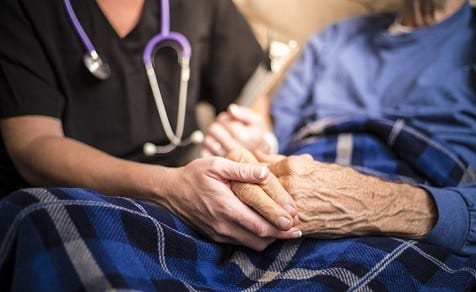Nothing prepares you to receive a terminal cancer diagnosis, such as mesothelioma. It will leave you with a sea of emotions, from fear or anger to numbness that you will somehow have to find a way to cope with. But, once you are ready, there are resources out there to help you deal with the emotions and maintain a good quality of life.
Coping With Terminal Cancer
Even without a cure for mesothelioma, that doesn't mean you have to give up.
Many effective coping strategies can help you maintain a good quality of life after your diagnosis:
- Focusing on the present and taking things one day at a time
- Acknowledging that you will have good and bad days and that this is normal
- Learning how to express your emotions constructively, whether it's through art, professional counseling, physical activity, or helping others going through the same thing
- Maintaining your normal routine
- Letting people help you, and asking them for specific forms up support, even if it's only listening to you talk about your feelings or playing a few games of pool with you
- Taking the time to communicate with your health care team, and learning more about your diagnosis and the options available to you
- Asking yourself what you want to do with your remaining time and whether or not the action will enhance your quality of life, and then, if the answer is yes to the second question, doing it
You might not know what doctors mean when they talk about enhancing your quality of life. In general, they’re referring to the ways in which you can maintain your day-to-day living while reducing physical and emotional symptoms that come with mesothelioma.
Some small actions that can improve your day-to-day emotional health are:
- Saving the letters and emails from your grandchildren or other family members
- Writing letters to your friends and family members
- Making home videos your family members can watch after you’ve passed
Other things that can improve your quality of life include making time to visit with friends, scheduling activities that you enjoy doing so you have something to look forward to, or trying something new (especially if it's something you've always wanted to do but were too scared or shy to try it).
Emotional Support for Terminal Cancer
Even if you know and practice a variety of coping strategies, dealing with terminal cancer is emotionally exhausting. The way you feel might change suddenly from moment to moment. Those feelings might be ones you aren't used to dealing with or they might be more intense than usual. These feelings are perfectly normal, but you don’t have to go through them on your own.
You can talk about, and share your emotions with friends and family. Or if you don't want to burden your loved ones, you can talk about your feelings with fellow participants of cancer support groups, professional counselors or leaders of your faith community.
However, while sharing what you are feeling can be helpful, don't feel pressured to share more than you are comfortable with. And if you aren't comfortable sharing anything, that’s okay. People can support you emotionally in more ways than just their words. Merely being present can help.
Treatments for Improving Quality of Life
If you are worried that your quality of life won't be what it used to be because you are in constant pain or are struggling to breathe, it's important to know that there are treatment options that can help.
You can participate in life-extending chemotherapy or radiation therapy to alleviate some of your symptoms. You can also take medication or try acupuncture and other alternative therapies to help manage pain.
While terminal cancer treatments are costly, there are legal options available for veterans with mesothelioma. We can help you navigate that side of things so you can spend more of your time focusing on the important stuff. Learn more by contacting an experienced mesothelioma lawyer today.

